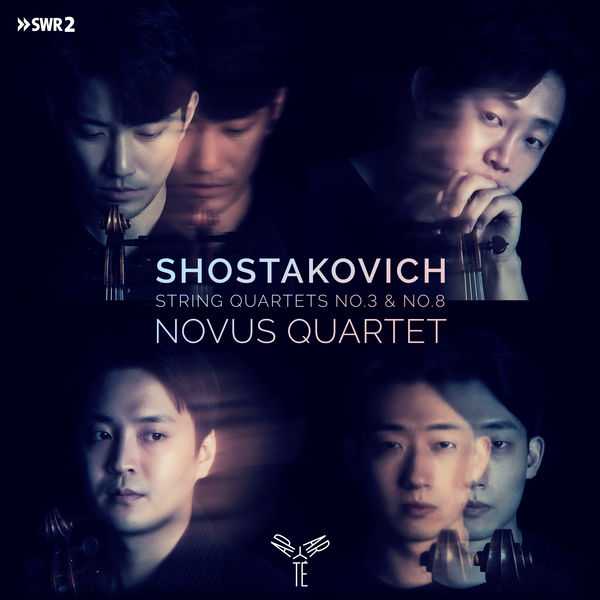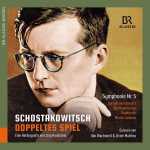

Composer: Dmitri Shostakovich
Performer: Novus Quartet
Format: FLAC (tracks)
Label: Aparté
Catalogue: AP271
Release: 2022
Size: 547 MB
Recovery: +3%
Scan: yes
String Quartet No. 3 in F major, Op. 73
01. I. Allegretto
02. II. Moderato con moto
03. III. Allegro non troppo
04. IV. Adagio
05. V. Moderato
String Quartet No. 8 in C minor, Op. 110
06. I. Largo
07. II. Allegro molto
08. III. Allegretto
09. IV. Largo
10. V. Largo
Shostakovich was in his early thirties when he first turned to the string quartet. He planned to produce a full cycle of 24; he completed 15.
These works embody his resistance to a crushing Soviet power that held the belief that all art should be political. At the same time, he used them as a means of personal, autobiographical expression, aimed at presenting a true depiction of himself as a man and an artist.
Bringing together nos. 3 and 8, the Novus Quartet make Shostakovich’s revolt tangible, while faithfully representing the magnificent, heartrending world of this great composer.
Flawless technique, impeccable balance, and a luminously clear-toned and supremely elegant, slender sound. These are the qualities we’ve come to anticipate from the recordings of former Salzburg Mozart Competition winners the Novus Quartet, who formed in 2007 at the Korean National University of the Arts. And there’s much to play to those strengths in the two Shostakovich String Quartets they’ve chosen for their first recording since 2019.
No. 3 in F major’s opening Allegretto is a case in point. Evoking the spirit of the Limoges market in Mussorgsky’s Pictures at an Exhibition, it bounds into sound with a fabulous, crisply insouciant bounce, textures freshly lucid, and retaining sunniness even where it would be easy to let Shostakovichian sarcastic bite to nudge its way in. As for that aforementioned blending, just listen to the tonal matching between the two violins midway through the final Moderato. Also the sheer sweetness and slender finesse of the first violin’s reprisal of the theme.
Still, gut-wrenching pain and biting irony are also a part of the Shostakovich package, and these readings offer more of a mixed bag of satisfaction on that front. Sticking with No. 3 (which was written in 1945 as a portrayal of both the joys and the sorrows of the Russian people), its hushed, despairing final fade is articulated here as a whisper of heartrending fragility. Earlier though, while its Allegro moderato is impressively neatly prickly, it’s missing a bit of the rawness that some listeners will be wanting from a movement depicting the harshness of daily life in one of Russia’s darkest periods in history.
On to self-quotation-filled Quartet No. 8 in C minor – famously written in over three days in 1960 as Shostakovich visited the bombed remains of Dresden, and dedicated to “the victims of fascism and the war” – and while the keening anger of its Allegro molto offsets any vaguely perceived lack of violence, the Allegretto and Largo feel slightly unsatisfyingly perfect and classically beautiful to truly hit their mark. That said, it’s impossible not to find oneself lapping up the sheer finesse and beauty the Novus has brought to this music.



